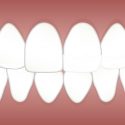Can Mouth Guard Cause Gum Disease?
If you have played sports frequently, then a mouth guard might be an important unit to protect your teeth from chipping or breaking due to unexpected contact. But due to many reasons, this piece of equipment is often put in the wrong after practice, thus allowing harmful bacteria to form and causing some gum diseases. The problem is that many people usually ignore or don’t realise this issue until it gets worse.
Keep reading to learn more about how a mouth guard can affect your oral health and useful tips to keep it clean.
What is a mouth guard?
Also known as a bite splint, night guard, or gum shield, a mouth guard is a protective unit which can protect your gums and teeth against injuries when playing sports or other health conditions such as grinding or bruxism.
It is typically made of soft rubber and can be adjusted easily to fit different gum sizes and teeth alignments. A mouth guard is often used to cover the upper part of the teeth, which would also protect the soft tissues of the tongue, cheek lining, and lips.
Can a mouth guard cause gum diseases?
While a mouth guard could be essential in preventing your teeth from serious damage or injuries when playing sports, it could cause some gum diseases due to many reasons.
Firstly, many people don’t store their mouth guard in the right place. After a long game or intense session at the gym, they just toss this unit into a bag or backpack, which also store many other things like dirty clothes, foods, or drinks.
As a result, fungi, yeast, and bacteria can quickly form and build up. Over time, these components will weaken your enamel and damage your teeth when you wear the guard during training or playing.
A mouth guard could also be a breeding ground for harmful bacteria, including strep and staph, if it isn’t cleaned regularly and properly. This unit is designed with many deep spaces which can be great places for these damaging components to accumulate over time.
Without cleaning, they will be transferred to your mouth and find their way into your teeth and gum to cause many health issues.
Some people who often chew on their mouth guard can also increase the risks of gum diseases. Though this seems to be harmless, this habit can create small holes on the surface, which are ideal homes for germs and bacteria to accumulate. Once these components have built up, it is extremely difficult to prevent them from spreading.
fore For these reasons, it is essential to keep your mouth guard in the right place and clean it after each use to ensure the overall hygiene and prevent dental issues. The next section will show you some useful tips to clean your mouth guard properly.
How to clean and care for the mouth guard properly
Just like cleaning your teeth daily to remove food debris, you should also clean your mouth guard after each use to prevent possible health risks. Fortunately, this can be a simple and quick process.
Keep in mind that running clean water over the unit isn’t enough to make it clean. Instead, it is advisable to brush the mouth guard thoroughly and rinse it before and after each wear. Do the same for your mouth at the same time to make sure your mouth is free of bacteria which can spread to the unit.
Once or twice per week, consider soaking your gear in an antimicrobial solution like denture cleaner or diluted mouthwash to minimise the amount of harmful organisms.
Equally important is the way you store your mouth guard. Ideally, it should be kept in a clean and moisture-free container with good ventilation.
Also, make sure to clean the container regularly to prevent the accumulation of germs inside, which can eventually transfer to your gear. Use warm water and non-toxic cleaner to wash the interior part, then let it dry completely before storing your mouth guard.
Keep your mouth guard away from high-temperature conditions such as direct sunlight, hot surfaces, or heated water to minimise distorting the original shape. Also, make sure to carry a back-up gear when you are playing sports in case the primary unit gets damaged or dirty.
By keeping your mouth guard covered and clean, it could protect your mouth more effectively and longer.
When to replace a mouth guard
A new mouth guard always starts off smooth and sleek. But after frequent use, it can develop cracks and pits which make ideal spaces for harmful bacteria. Also, a rough patch on the unit near your gums would break your skin and create a place for these components to enter the body.
Therefore, it is essential to keep an eye for any fissures, cracks, and breaks and replace your guard when it starts to show some signs of wear and tear.




